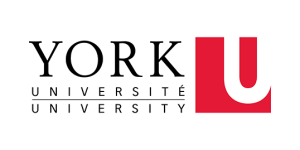2 Digital Technologies (DT) and Work-Based Learning (WIB)
Work-Based Learning is a form of WIL
Your WIL program is called Work-Based Learning (WBL) with both in-person blocks and virtual components for your academics while you are employed. During the program, you will have the opportunity to reflect on and debrief your experiences. Think of these as the “feeling” and “thinking” stages of Kolb’s model of experiential learning, which you will learn more about in your Technology Leadership and Professional Reflection course.
You will be asked to work independently on activities and assignments. However, the York University team is here to support you; it is important to be aware of how to access assistance when needed.
Here are a few ways we will connect over each term:
- Term Check-ins. Your Professional Skills Coach will connect with you and your supervisor at multiple points during each term. This monitoring exercise may happen virtually via a conference call or involve an actual visit to the worksite. Your employer will also be asked to complete evaluations of your workplace performance.
- Learning Portfolio Development. You will be asked to reflect on your skill development and provide evidence of your learning within a formal learning portfolio (PebblePad) as part of your program evaluation process. The Learning Portfolio will be important over time to capture workplace learning that could articulate competency development.
The Work Part of WBL
As a WBL student, you will have a lot of responsibilities at work. You will maintain dual accountability to both your WBL courses and your supervisor at work. You will need to communicate, conduct yourself professionally, understand confidentiality, seek feedback, and be open to learning. Your success is dependent on open communication and active listening.
Before you begin, you should familiarize yourself with your school’s student code of conduct, the Digital Technologies Learning Agreement, and the organizational guidelines and rules at your workplace. Here are a few common responsibilities that you will have as part of the work part of WBL:
- Follow Workplace Requirements. Be punctual and follow the daily organizational routines that are in place. Organizations often mandate that employees abide by a set structure of routine, with scheduled work hours, breaks, and social norms.
- Work within your assigned role. Your roles and responsibilities may begin before and keep going after the work placement. However, your duties should be clearly laid out. Students are responsible for open communication to ask questions, express any concerns, and ensure to perform and complete tasks assigned to their best abilities.
- Be curious about the workplace protocols and culture of your placement. Organizational protocols and culture will vary from organization to organization, and this is your opportunity to really explore the industry or sector where you aspire to work after graduating. Confidential information related to the work placements should not be disclosed without the written permission of the employer. Always seek clarification from the employer if you are unsure whether certain material or information is confidential. Information obtained in WIL should not be leveraged in any way for personal gain.
- Follow occupational health and safety guidelines. You should also seek to know and understand the workplace occupational health and safety standards within your region. Here is the link for Ontario Work Place Safety Standards.
You are required to manage the set of obligations set out by York University and the employer. Remember to maintain a high level of professional behaviour and enjoy the learning experience.
Questions to consider
To help you prepare for your work placement, come up with a plan! Try to answer the following questions about your work before it begins:.
-
- How can I demonstrate active engagement in my work placement?
- What if I make a mistake?
- The work tasks being assigned to me are out of my scope of knowledge; what should I do?
- My responsibilities are unclear, who could I talk to?
- How can I find out the daily organizational routine?
During the work term
- How can I demonstrate active engagement in my work placement?
- Ask for a list of duties and orientation materials.
- Prepare a calendar with events and due dates.
- Create some templates for routine tasks to remind me of what to do.
- Request feedback on my performance from my supervisor.
- What if I make a mistake?
- Identify the mistake and fix it if I can.
- Report to my supervisor.
- Come up with a plan to prevent it from happening again.
- The work tasks being assigned to me are beyond my scope of knowledge; what should I do?
- Identify strategies for learning on the job.
- Ask for help and clarification from my manager/team leader/mentor.
- Request additional training or job shadowing if I need it.
- My work responsibilities are unclear; who could I talk to?
- Supervisor
- How can I find out the daily organizational routine?
- Co-workers

